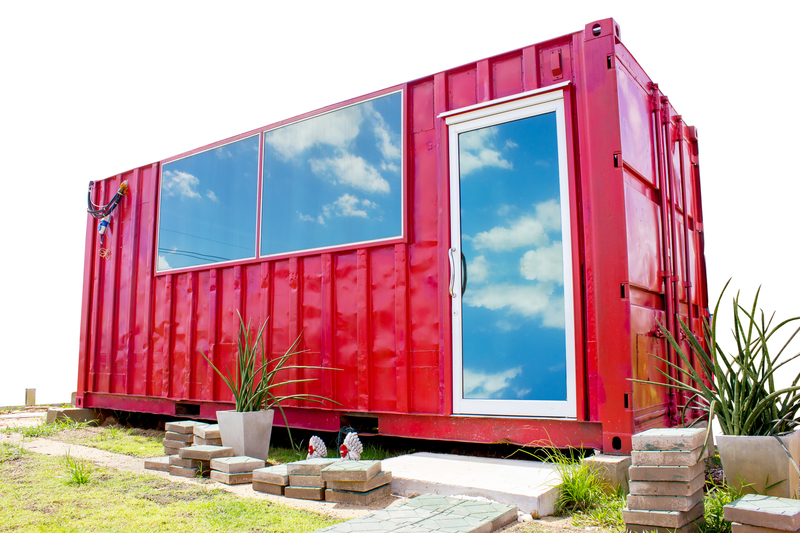How to Legally Dump Large Furniture Items in Your City
Are you upgrading your sofa, replacing bedroom furniture, or finally saying goodbye to an old dresser? Disposing of bulky furniture items can be surprisingly tricky. Most cities don't allow you to simply leave couches or mattresses on the curb with your regular trash. If you want to avoid fines and do your part for the environment, it's crucial to understand how to legally dispose of large items in your area.
This comprehensive guide will walk you through your options for legally dumping large furniture items, including curbside pickups, donation programs, recycling, hiring junk removal services, and more. We'll also provide practical tips and answer common questions about large furniture disposal rules in a variety of cities. Whether you have an old couch, an unwieldy bed frame, or a set of wardrobes, you'll find everything you need below.
Why Proper Furniture Disposal Matters
Simply abandoning large pieces of furniture is illegal in most municipalities. Not only can improper dumping result in hefty fines, but it also clutters neighborhoods, blocks sidewalks, and damages the environment. Many furniture items contain chemicals such as flame retardants, plastics, metals, or treated wood, all of which must be handled responsibly.
- Compliance with Local Ordinances: Every city and county has specific rules regarding bulky item disposal. Incorrectly discarding furniture can lead to citations.
- Environmental Protection: Recycling or donating extends the life of materials and keeps toxins out of landfills.
- Neighborhood Aesthetics: Legally dumping furniture keeps communities clean, healthy, and inviting.

Options for Legally Dumping Large Furniture
When you need to dispose of large furniture in your city, several legal options are available. It's important to research both city-sponsored and private solutions.
Curbside Bulk Pickup Programs
Many municipalities offer curbside bulk collection for large items like sofas, mattresses, dressers, and tables.
- How it works: Usually, you'll need to schedule a pickup with your city's waste management department, either online or by calling a hotline.
- Frequency: Some cities offer these pickups monthly, quarterly, or even only a few times annually.
- Fees: Curbside bulk pickup may be free, cost a nominal fee, or be included in your regular trash bill.
- Restrictions: Most programs limit the number and types of items per pickup. Hazardous or very large constructions (like pool tables) might not qualify.
Tip: Search for "[Your City] bulk furniture pickup" on the web to find details for your specific location, or check your city's Department of Public Works website.
Designated Drop-Off Locations and Transfer Stations
Most cities operate drop-off centers or transfer stations for residents who have items that don't fit in regular trash bins.
- How it works: Bring your item to the facility in your own vehicle during open hours.
- ID proof: Proof of residency may be required (such as a driver's license or utility bill).
- Fees: Some centers charge a per-item or per-load fee, others are free for residents.
- Accepted items: Furniture, mattresses, appliances, and some electronic items may be accepted. Always check the rules first.
*Pro tip: Many towns offer annual or seasonal amnesty days, when you can drop off large items at no charge.*
Furniture Donation and Reuse Programs
- Donation is a legal and eco-friendly way to handle usable pieces. Organizations like Habitat for Humanity ReStores, Goodwill, and Salvation Army often accept furniture in good condition.
- Pickups: Some charities offer free home pickups for large items; you may need to book several weeks in advance.
- Tax Benefits: You may benefit from a tax deduction. Always request a donation receipt.
- Condition Requirements: Furniture should be clean, functional, and free of major damage.
Visit DonationTown.org or similar platforms to search for local charities that accept large item donations in your area.
Specialized Recycling Centers
Certain furniture materials--like metal frames, untreated wood, or plastics--can often be recycled at a specialty facility.
- Mattress Recycling: Many cities and states run mattress recycling programs that dismantle and reuse components.
- Wood & Metal: Check with your city's recycling center or local scrap yards about large item drop-offs.
- Environmental Impact: Recycling reduces landfill waste and supports responsible material management.
Private Junk Removal Services
If you're short on time or have a particularly large or heavy item, professionals can help.
- Professional haul-away companies (like 1-800-GOT-JUNK, Junk King, etc.) will remove your furniture from anywhere on your property.
- Cost: Prices are usually based on volume or the number/weight of items. Be sure to get a quote upfront.
- Responsibility: Reputable companies donate and recycle whenever possible.
- Licenses: Always verify the company is licensed and insured to operate in your city.
Retailer Take-Back Programs
If you're buying new furniture, ask if the store offers old furniture removal as part of delivery. Some will remove your old sofa or mattress for a nominal fee--sometimes free!
- Appliance stores often provide this service with new purchases.
- Avoid Illegal Dumping: Since you're working with an authorized retailer, this is always a legal way to dispose of large items.
How to Find Your City's Furniture Disposal Rules
Every municipality has its own policies and procedures for disposing of bulky items. Familiarizing yourself with local rules is the best way to ensure legal and stress-free disposal.
- City or County Websites: Most cities post large item disposal guidelines online (look for terms like "bulk trash," "large item pickup," or "waste management").
- Call 311 or Local Sanitation Hotline: Operators can answer specific questions about what's allowed and help you schedule pickups.
- Community Newsletters: Many neighborhood associations share bulk disposal dates and rules with residents.
Common Restrictions and Requirements
- No hazardous materials mixed with large furniture (e.g., paint, propane tanks).
- Freon must be removed from recliners with built-in refrigerators or appliances before drop-off.
- Mattresses and upholstered furniture may fall under special rules due to bedbug risks or recycling laws.
- Weight or size limits may apply--verify in advance to avoid rejected pickups.
Step-by-Step: How to Legally Get Rid of Large Furniture
- Inspect Your Furniture: Decide if the item is usable or suitable for donation. If so, consider giving it a second life.
- Research Disposal and Recycling Programs: Use city resources or local search engines to identify legal options for bulk disposal in your area.
- Follow Proper Preparation Methods: Many cities ask that you remove cushions, unscrew legs, or wrap mattresses in plastic for safe handling.
- Schedule Pickup or Drop-Off: Arrange a curbside appointment or check operating hours for drop-off locations. Save your confirmation or receipt.
- Double-Check for Updates: If in doubt, call your city or county hotline before placing furniture out--it's better to ask than risk a violation.
Frequently Asked Questions About Furniture Disposal
Can I leave my old sofa or mattress on the curb on trash day?
Usually, no. Most cities require advance scheduling for bulky item pickup and won't collect large items not arranged in advance. Unscheduled furniture may result in fines.
What happens if I dump large furniture illegally?
Illegal dumping is subject to fines, legal action, or even criminal charges in some cities. Penalties can range from $100 to several thousand dollars.
Does my city offer free large item collection?
Some cities include annual or seasonal free bulk pickups for residents; others may charge a small fee. Check your local waste management website for your schedule and rules.
Can apartment residents use bulk disposal programs?
Often, yes. However, apartment communities may have their own process for large item removal. Always speak with your property manager before arranging pickup or leaving furniture in common areas.
Do I need to prepare my items before disposal?
Yes. Common requirements include:
- Wrapping mattresses in plastic covers
- Disassembling beds or tables
- Taping doors/drawers shut
- Labeling for pick-up

Tips for Environmentally Responsible Furniture Disposal
- Donate or Sell First: Giving usable items away (even using community groups like Facebook Marketplace or Freecycle) keeps them out of landfills.
- Choose Eco-Friendly Junk Removers: Ask if your hauler recycles or donates whenever possible.
- Skip "Dumpster Diving" Solutions: Never leave furniture near dumpsters or in alleys, as this is classed as illegal dumping.
- Host a Neighborhood Swap: Organize a local event to exchange furniture and large items with neighbors before disposal.
Summary: The Legal Way to Dump Large Furniture in Your City
When disposing of large or bulky furniture, compliance, safety, and responsibility are key. By using city-sponsored programs, donating, recycling, or hiring licensed junk removal services, you'll keep your community clean--and avoid costly fines.
- Research your city's specific bulky item disposal options
- Schedule legal curbside pickups when available
- Make use of drop-off centers for quick, responsible disposal
- Donate or recycle whenever possible
- Avoid illegal dumping at all costs
By following these steps and knowing how to legally dump large furniture items in your area, you're making your city a better place for everyone--and doing what's right for the planet.
Resources for Further Reading
- EPA - How Do I Recycle Furniture?
- Habitat for Humanity ReStore Donation Guide
- DonationTown - Schedule a Furniture Pickup
- 1-800-GOT-JUNK - Furniture Removal Services
Remember: Always check with your local government or city waste management website for the latest, most accurate information!